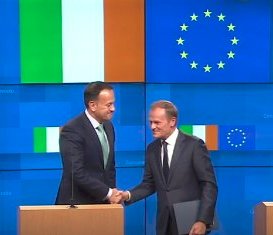CIBUK.Org looks at the state of Brexit Britain – history, progress and opportunities
Montage © CIBUK.Org
This report has been co-published with our affiliated organisation, Brexit Facts4EU.Org. We are most grateful for their original research.
We have just entered the third year of Great Britain’s freedom from the EU empire
What have been the benefits of Brexit and what is still to come? Part One
It is the start of the third year since Great Britain fully exited the European Union, at 11pm (midnight in Brussels) on 31 December 2020. In effect, GB’s independence started on 01 January 2021, which means it has just entered its third year of freedom from the EU empire. Sadly, Northern Ireland has been left behind but we hope this will soon be rectified.
It seems an appropriate time to take stock. In what follows we look at England, Scotland and Wales, as so much of Brexit does not yet apply to Northern Ireland. We summarise N.I.’s position further down in this report.
This is the first part of a review of Brexit by Facts4EU.Org and the ‘Clear Water’ CIBUK initiative and we begin with a retrospective look at what happened since the largest democratic vote in British history, on 23 June 2016.
Brexit – the timeline
It is stated in the official documents that the United Kingdom formally exited the EU on 31 January 2020. Whilst lawyers may argue this is technically the case – and the Johnson Government certainly did – the UK immediately entered the ‘Transition Period’ for a further 11 months.
In practice, nothing had changed. The same EU rules applied until the end of 2020. The UK remained in the European Union Customs Union and the Single Market.
As a result and to all intents and purposes, Brexit cannot be said to have started until 01 January 2021. We have therefore just entered the third year of (a partial) Brexit.
The Remainer years : 2016 – 2019
For four years after the EU Referendum the Remainer Establishment colluded to block the democratically expressed will of the British people. All elements of the Establishment were involved, from Ministers, MPs, Peers, to almost every UK institution from the CBI to the Church of England, to the BBC and the rest of the broadcast media, and to most of the press.
 Internationally it was the same. The EU Commission and Council was determined to punish the United Kingdom, of that there can be no doubt. The government of the Republic of Ireland also weighed in, seeing an opportunity for a united Ireland. And finally all the globalist bodies such as the IMF and OECD did everything they could to support the notion that the Brexit vote was an aberration and should be reversed – or mitigated to such an extent it was meaningless.
Internationally it was the same. The EU Commission and Council was determined to punish the United Kingdom, of that there can be no doubt. The government of the Republic of Ireland also weighed in, seeing an opportunity for a united Ireland. And finally all the globalist bodies such as the IMF and OECD did everything they could to support the notion that the Brexit vote was an aberration and should be reversed – or mitigated to such an extent it was meaningless.
Photo left: Varadkar and Tusk. Credit: EU Council

Perhaps the most shameful moment occurred when anti-democratic MPs from all parties voted for the so-called ‘Benn Bill’ (European Union (Withdrawal) (No. 2) Act 2019). This had the effect of tying both hands behind the Government’s back in its negotiations with the EU, and led to the general election in December of 2019.
Photo left: Hilary Benn MP
It wasn’t only Labour MPs and their Tory & LibDem fellow travellers – the SNP were involved too
Many parliamentary votes were held on what form Brexit might take with the Remainer majority of MPs themselves unable to agree. On 27 March 2019 a vote for the UK to remain in the EU’s Customs Union failed by just 8 votes, but only because the 35 Remainer SNP MPs chose to abstain, in the hope of making Brexit more unpopular.
By the time of the Benn Act, all the damage had been done, the agenda set. All that could have been done at that point was to exit without a deal and to trade with the EU on WTO terms – which is precisely what we argued and campaigned for. Instead the Government chose to proceed in the best way they felt they could in the final negotiations with Brussels.
.
And what did we end up with?
The result of all of the above, caused by the anti-democratic Remainers and the extremist ideologues of the EU Commission, was the disastrous Withdrawal Agreement, the pernicious N.I. Protocol, and the dysfunctional Trade and Cooperation Agreement.
We have previously reported many times on all of these in detail. In this start-of-year summary we will only highlight some key issues.
Summary
The Withdrawal Agreement, the N.I. Protocol, and the ‘Trade and Cooperation Agreement’
1. The Withdrawal Agreement – the ‘WA’
In amongst many totally unacceptable clauses of the Withdrawal Agreement is “the Divorce Bill”. This involves the continued payments by the UK to the EU up to the year 2064 – totalling around £40bn and rising – and with no legal justification whatsoever.
2. The disgrace of leaving Northern Ireland behind – the ‘NIP’
Quite disgracefully, Northern Ireland was left behind and is still effectively under EU control, thanks to the Northern Ireland Protocol (NIP).
Northern Ireland’s status
- Still in the EU’s Single Market
- De facto in its Customs Union
- Governed by laws old and new from Brussels
- No-one in the Province can vote for or against the EU’s lawmakers
- Under the jurisdiction of the European Court of Justice (CJEU)
- The Act of Union has been nullified by the Withdrawal Agreement and its Protocol
- The Belfast (Good Friday) Agreement has been destroyed
3. The UK-EU Trade and Cooperation Agreement (TCA)
As with the WA and the NIP, the ‘Trade and Cooperation Agreement’ (TCA) has not exactly helped the UK. Ostensibly designed to continue the free movement of trade between the EU and the UK, (and most of the goods come from the EU to the UK), it has been characterised by stories of belligerent and bureaucratic Customs officials in France, Belgium and the Netherlands making life as difficult as possible for British exporters.
Probably the most famous example is British truckers being refused clearance because ‘the wrong coloured ink’ was used on the import declarations.
Rejoiners of course attribute these things to ‘failures of Brexit’ whereas in fact they are caused by the EU wishing to punish the UK. Has the UK made life difficult for EU exporters? No. Their products have sailed through to Brexit Britain because the UK Government unilaterally accepts EU goods as meeting its standards and applies no checks.
Please support our work
For the original report, click here : https://facts4eu.org/news/2023_jan_year_3_brexit